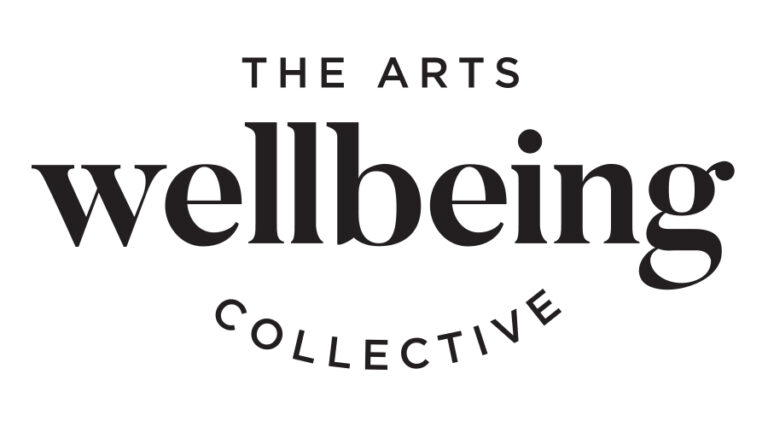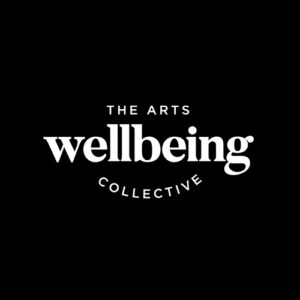
Once the touring company hits the road, you can still have a positive influence on their wellbeing, even if you’re not on tour with them. It is time to deliver well. The aim is to bridge the gap between the office and the road. Through supporting healthy communication practices, promoting positive work/life balance and encouraging positive relationships between all touring company members, you can ensure all your great pre-tour work continues on tour.
Remind the company that ‘we’re all in this together’ – encourage them to proactively share successes with you, as well as open and honest solution-focused sharing of problems – or even niggles that might become problems.
Schedule regular phone or video production meetings between touring crew and production personnel back in the office. Ask open-ended questions to allow for problems to be raised early, and encourage positive experiences to be shared too, not just challenges. Try ‘What is going well? Why is it going well?’ (This might be to do with longer bump in times, extra crew, clear tech specs being sent to the venues in advance etc., and can help you replicate these success factors for future tours). Share what’s gone well with the venue – they’ll appreciate the positive feedback!
Organise occasional one-on-one phone check-ins from the producer to ensure all cast and crew members feel valued, supported and heard. Ask about what they’ve found helpful for maintaining good mental health and wellbeing. Reinforce that it is important for all touring company members to have some personal and private time, and that they should not feel guilty about taking that.
Role model healthy communication practices between your team and the touring team. Respect days off, encourage the setting of out of office messages after hours, and resist making contact on days off or after hours unless it’s an emergency or previously arranged and agreed upon. Encourage the touring party to explore similar practices with each other.
Ensure the Company Manager or Stage Manager is well supported with regular, scheduled one-on-one checks ins. Often this person can become the ‘go to’ for the whole company, and will need extra support. They can also help identify issues early, allowing you to address them quickly. Ask open-ended questions, and try not to let the conversation fall into ‘patterns’. Prompts include:
Use show reports to help get an accurate representation of the company’s mental health and wellbeing. Acknowledge show reports generally, and respond specifically to individual cast/crew members if required. Consider adding a ‘vibe check’, with a score out of five and space for commentary to give you a sense of what’s going on, even when there’s no actual identified issue to report. Include venue issues in show reports so they can be officially logged, addressed internally, followed up, and readdressed if the company goes back to the same venue.
If there is an issue on tour, such as within the company, with local venue teams, or the wider community, ensure that the complaint is heard, those involved are well supported, the complaints policy is followed, and appropriate action is taken.
Send regular communications to the touring company promoting positive mental health. You could utilise text from Tour Well, and top and tail it with reminders of how to seek support.
Follow technical schedules and operations, and if it is clear that there is a day where the team will not get a break or opportunity to seek food, have nutritious food delivered to them.
Allow time in the schedule for regular touring company meetings, where issues can be raised, and successes celebrated. Encourage the company to start with sharing a positive experience, or thanking another company member for something simple.
Distribute regular and thoughtful newsletters (don’t worry if you’re not into fancy design – it could just be an email!) to share:
Organise a special activity for the company. Preferably aim for something that captures:
Optional and open invitation! Ensure there are some activities that are open to everyone, so no one ‘falls through the cracks’.
When liaising with venues, remind them of your organisation’s commitment to positive mental health that was included in their venue contract.
You could encourage them to:
Create an ‘offer board’ in the green room or another shared space, where each company member writes an ‘offer’ to the rest of the company on a piece of paper with their name on it. For example, ‘I’m happy to go for a walk between shows’, ‘You’re welcome to join me in my dressing room for meditation at the half hour call’, ‘If you need to debrief about TV show/book/film, I’m your go to’, ‘I’m celebrating [cultural festival/special day/event], you’re welcome to join me or ask questions about it.’
If you are producing a long-running show, consider offering courses for the company that are not related to the tour (e.g. singing/dancing/acting/rigging), or achievement-based (e.g. with a certification outcome or similar), but just for fun!
Organise care packages to be delivered to venues during the tour as a surprise. For example:
Organise a ‘Tour Kringle’ for each city (or on long-run metropolitan tours, perhaps each month). Each person is assigned a Tour Kringle (think Secret Santa style – each company member picks another company member’s name out of a hat), and are responsible for delivering a ‘random act of kindness’ for that person. Keep the emphasis on fun and kindness – a positive note, a cup of coffee.
Give the Company Manager a ‘Love Line’ in the budget, which is to be used for that bit of extra love for a company. Small gestures and fun activities can help the touring company feel connected, engaged and valued. It’s key that everyone is invited and feels included. Ideas include:
Utilise Opening and Closing Nights as opportunities for surprises – messages delivered backstage, a simple video to be played to the cast and crew, or something special to be left in the dressing rooms. Try not to fall back on alcohol as a gift – consider:
Make up a sheet of car games before a travel day!
I Spy – A classic. Be warned: nothing says spoil-sport like selecting a target that zoomed past a mile back so players should make sure that the object is visible throughout their turn.
20 Questions – Players pick a famous person and their fellow passengers have to guess who it is using only 20 questions. More ruthless players will opt for obscure personalities in order to prolong their turn but maybe opt for well-known figures to keep the game fresh.
The Memory Game – One passenger says “I’m going out on a picnic and I’m bringing…” followed by whatever item comes to mind. The next player has to remember that item and add something else. Getting a part of the story wrong results in instant expulsion!
Car Movie Tennis – ‘serve’ a performer’s name, ‘return’ with a movie they were in, ‘lob’ with another performer from that same movie, ‘backhand’ with a movie THAT performer was in, and so on, until someone ‘misses’ with an incorrect answer or can’t think of a response. For example: Elijah Wood / Lord of the Rings / Cate Blanchett / Blue Jasmine…
Fortunately/Unfortunately – ‘Fortunately, this will be my first time seeing the Grand Canyon’ / ‘Unfortunately, it was invaded by martians just last week’ / ‘Fortunately, I just finished my course in extra-terrestrial communications’…
Schedule visits by the Producer, Head of Production or member of the creative team to offer support and get a sense of how everyone is ‘on the ground’. There’s great value in ‘just because’ visits that focus on genuinely checking in on the team, and reminding them how valued they are.
Sometimes small houses or cancelled performances can lead to low morale. Try:
Not every touring company is going to gel perfectly and become the best of friends! Dynamics are complicated, and can become volatile during times of stress. The sooner issues are raised the easier they are to address. Try:
If a company member reports that they are experiencing mental health problems:
End of Part 3: Click here to Read Part 4
Tour Management Manual: Mental Health & Wellbeing – Part 1
Tour Management Manual: Mental Health & Planning Your Tour – Part 2



The Arts Wellbeing Collective is an Arts Centre Melbourne initiative that comprises a consortium of arts and cultural organisations whose shared vision is to effect better mental health and wellbeing for performing arts workers. Our objectives are to: - Improve support services for performing arts workers - Collate and share information - Effect industry cultural change - Improve support networks within and between arts organisations. Our guiding principles are: - Prevention focused, promoting positive mental health and wellbeing, and raising awareness of mental health, mental health problems and the value of early intervention. - Working in partnership, ensuring a variety of partnerships state-wide and across the industry – collaboration is core to the Arts Wellbeing Collective and vital to success. - Creating systems level change, through seeking to understand and address systems, cultures and traditions that contribute to poor mental health and wellbeing in the performing arts. - Long-term thinking, prioritising resources and initiatives that have capacity for long-lasting impact, scalability and transferability. - Knowledge creation and dissemination, working with experts and industry leaders to find, share, create and translate the best available information, tailored for creative contexts. - Encouraging innovation, Arts Centre Melbourne is always learning – we do not have all the answers. We will test, trial, evaluate, and share useful findings with energy and authenticity, and continue to be rigorously planned, strategically responsive and thoughtfully adaptable.
Read Full Profile© 2021 TheatreArtLife. All rights reserved.

Thank you so much for reading, but you have now reached your free article limit for this month.
Our contributors are currently writing more articles for you to enjoy.
To keep reading, all you have to do is become a subscriber and then you can read unlimited articles anytime.
Your investment will help us continue to ignite connections across the globe in live entertainment and build this community for industry professionals.